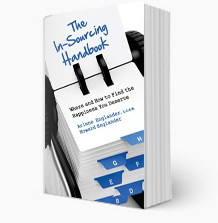This is the month when another class of graduates leaves the cloisters and ventures into the world at large. The diploma awarded, however, does not mark the end of one’s education. The walk across the stage is only a rest stop on life’s highway. In time, when compared to the skills it takes to navigate the road going forward, most people can be heard to mutter, “What was I thinking!”
The intellect it took to earn the diploma will serve graduates well. Knowledge based on the buttress of fact is essential. But the paradigm will change dramatically.
In the classroom the criteria for success is everyone getting the same answer. But another component of what constitutes ‘intelligence’ is required when entering the world at large. What is sought there are exceptions to accepted wisdom: creative, innovative and often intuitive solutions to problems. It explains why many extremely successful students fail when they leave academia and why the converse often is true.
So called ‘formal’ education requires the types of intelligence identified as logical-mathematical (quantifying things, making hypotheses and proving them) and linguistic (finding the right words to express what you mean). Once away from the ivied towers, however, we might be better served with the types of intelligence classified as interpersonal (sensing people’s feelings and motives) and existential (tackling the questions of why we live and why we die).
Candidly speaking, I’m not sure that the brain plays much of a part in the latter process. And in countless instances, that is the conundrum: many of us have not learned that the heart does not organize and interpret data; it responds to feelings, passion and love.
This month also celebrates Fathers’ Day and perhaps the traditional father to son/daughter relationship is the realm where men are exercising their “new intelligence” in positive ways. “Man up” is giving way to recognition of men’s softer side, their feminine energy; so-called manly behavior no longer relies on the old clichés.
In many families the parental roles are almost indistinguishable. There are stay-at-home dads, single dads and two-dad households and complex divorce agreements regarding custody and visitation rights. Decidedly more flexible interpretations of the role of ‘father’ are evolving and being defined.
Educational institutions can give us the tools to build our futures, but if we stop there all the ‘buildings’ will look the same. The heart may have an entirely different plan than the mind and it takes real life experience to reconcile the two and come up with the answer that suits you best.

